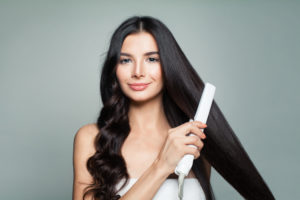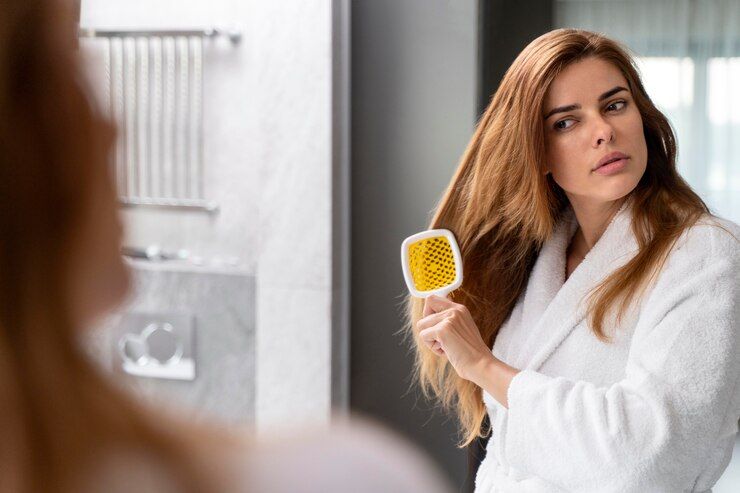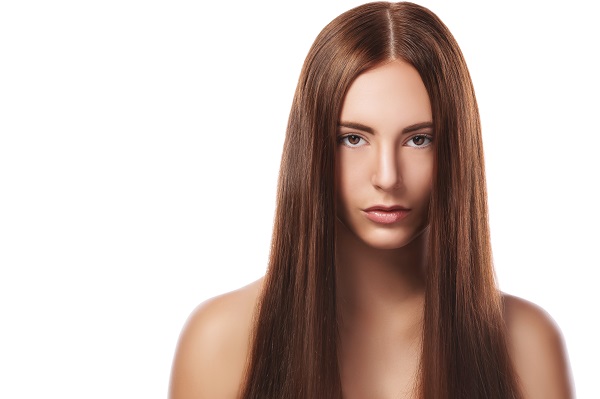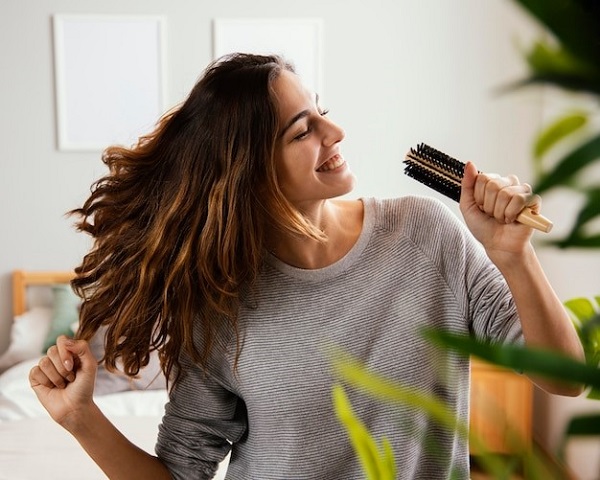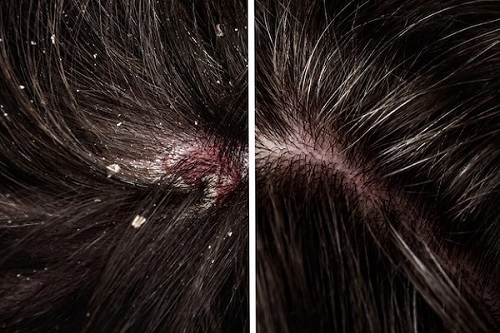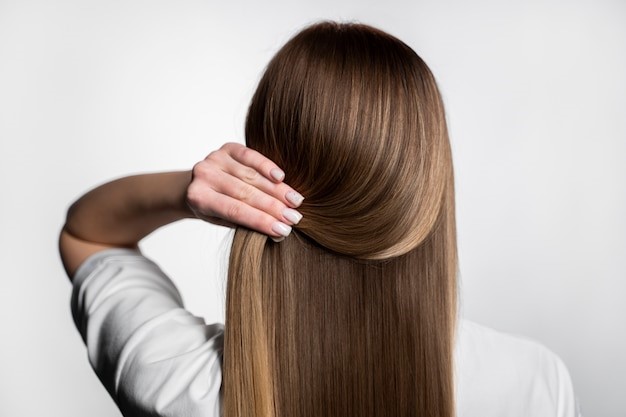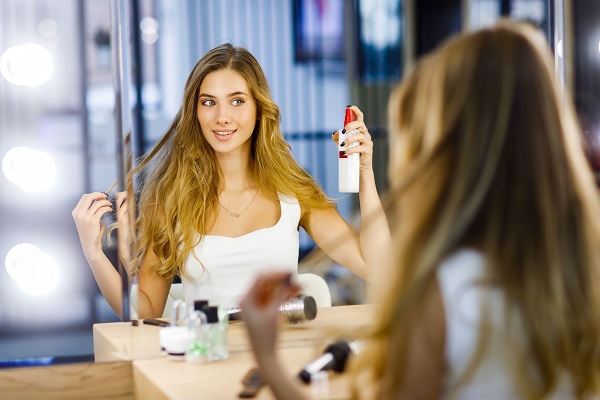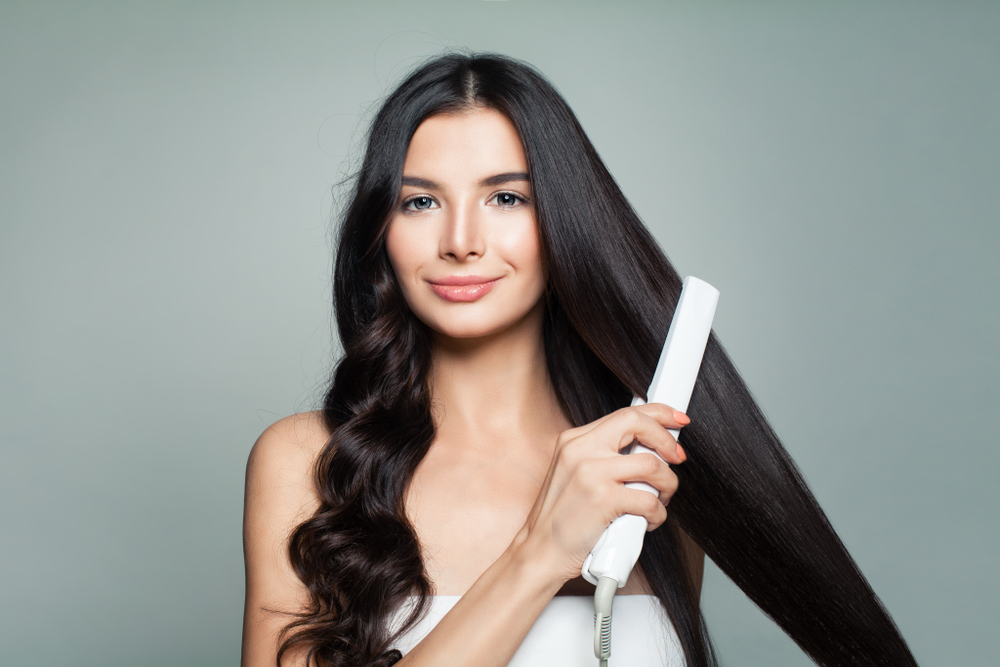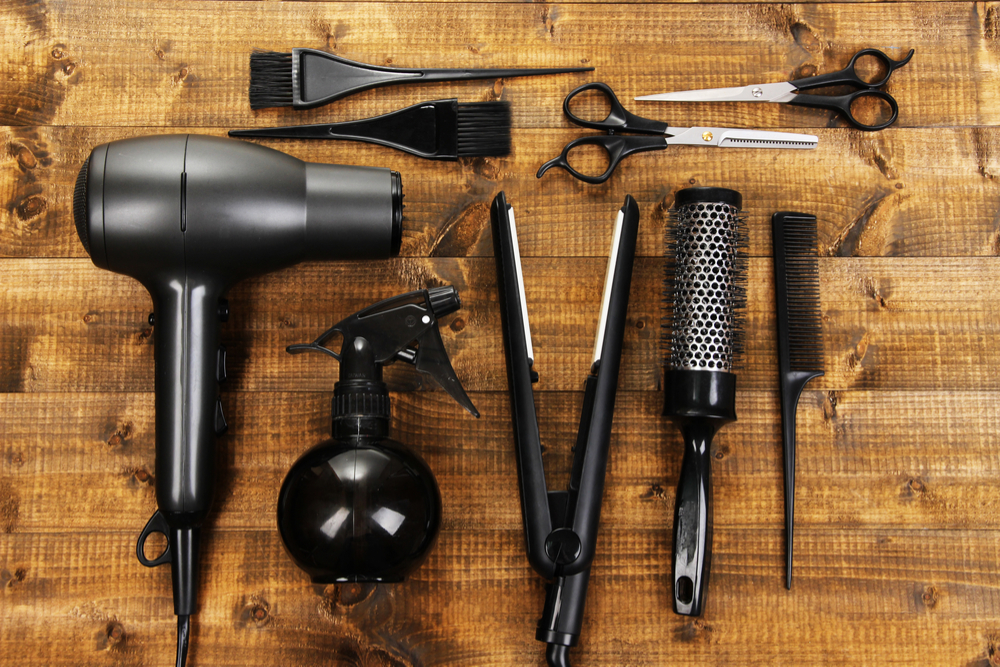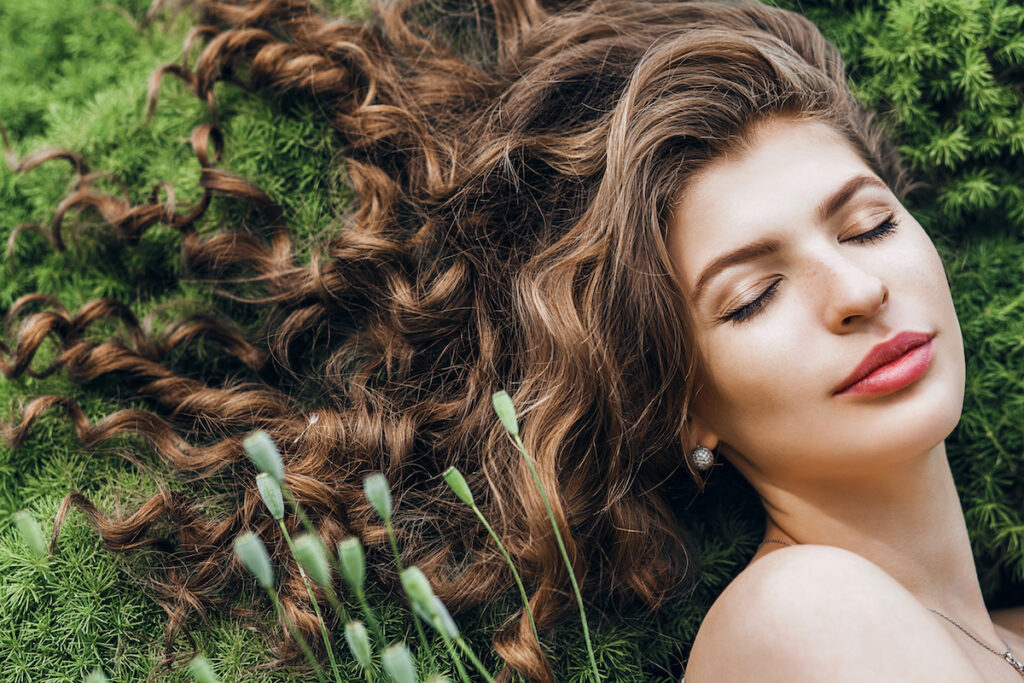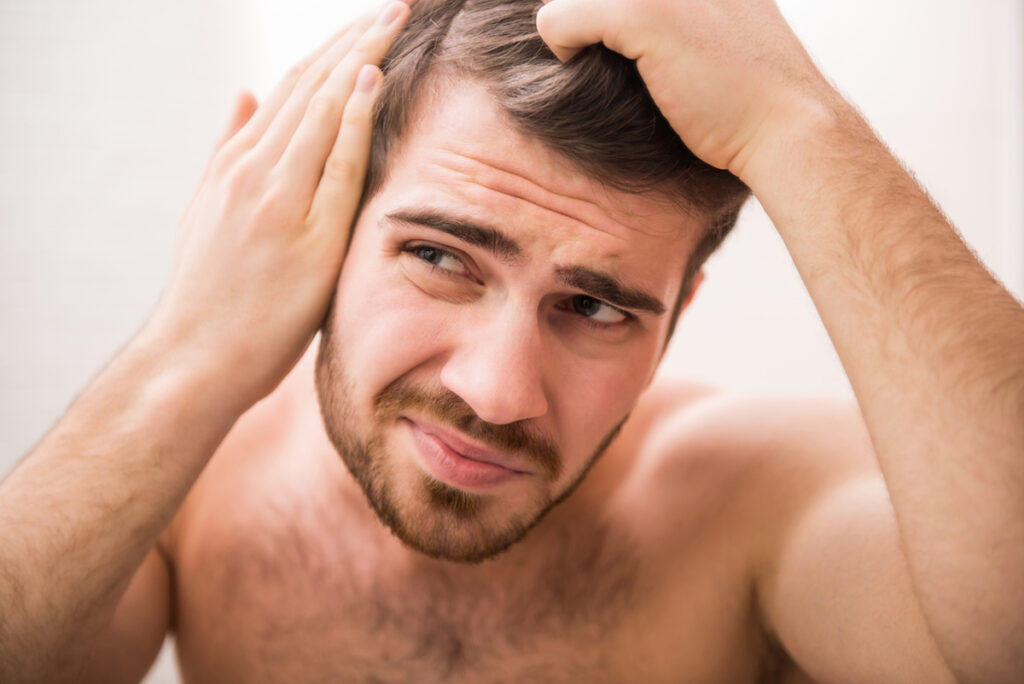Brief overview of the importance of hair health
Hair health is a crucial aspect of overall well-being, playing a significant role in our physical appearance and self-esteem. Beyond aesthetics, the condition of our hair can serve as an indicator of our general health. Factors such as nutrition, stress levels, and lifestyle choices all contribute to the state of our hair. Understanding and prioritizing hair health can lead to not only vibrant and luscious locks but also improved confidence and a potential reflection of internal health.
Setting the goal: Long and healthy hair
Setting the goal for long and healthy hair involves a holistic approach that encompasses both internal and external factors. While external care such as proper grooming and the use of suitable hair products is essential, internal factors like nutrition, hydration, and stress management also play a crucial role in achieving the desired results. Striking a balance between these aspects can contribute to the overall health and length of your hair.
Preview of the scientific approach, practical tips, and debunking myths
Scientific approach: Understanding the science behind hair growth and health is key to formulating an effective plan. Exploring topics such as the hair growth cycle, the role of nutrients, and the impact of hormonal factors provides a foundation for informed decision-making.
Practical tips: Implementing practical strategies is vital for achieving and maintaining long and healthy hair. This section will delve into actionable steps, including proper hair care routines, suitable products, and lifestyle adjustments that support optimal hair health.
Debunking myths: The realm of hair care is often filled with myths and misconceptions. Separating fact from fiction is crucial to avoid common pitfalls and ensure that efforts are focused on approaches that genuinely contribute to long and healthy hair.
By combining a scientific understanding of hair health with practical tips and dispelling myths, individuals can embark on a journey to achieve their goal of long and healthy hair. This comprehensive approach addresses the multifaceted nature of hair care and empowers individuals to make informed choices for their unique hair needs.
The Science Behind Hair Growth
Hair growth cycle explained
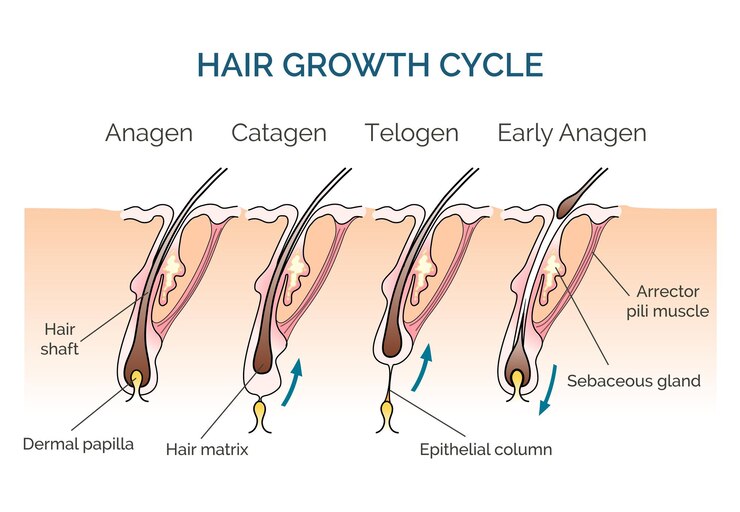
Anagen phase: The growth phase
- This phase is characterized by active hair growth.
- Cells in the hair root divide rapidly, and new hair is formed.
The length of the anagen phase varies among individuals, affecting the potential length of their hair.
Catagen phase: Transition phase
- A short transitional phase that marks the end of active hair growth.
- During this phase, the hair follicle shrinks, detaching from the dermal papilla.
- The catagen phase prepares the hair for the resting phase.
Telogen phase: Resting phase
- This is a resting period for the hair follicle.
- The old hair is released, and the follicle remains inactive for a period before re-entering the anagen phase.
- Shedding of hair during this phase is a natural part of the cycle.
Factors influencing hair growth
Genetics
- Genetic factors play a significant role in determining hair growth patterns and potential.
- The rate of hair growth, thickness, and susceptibility to conditions like pattern baldness are often inherited.
Hormones
- Hormones, such as androgens (including testosterone and dihydrotestosterone), influence hair growth.
- Hormonal changes, like those during puberty, pregnancy, and menopause, can affect the duration of each hair growth phase.
Nutrition and diet
- Adequate nutrition is essential for healthy hair growth.
- Key nutrients include proteins, vitamins (especially A, C, D, and E), minerals (such as iron and zinc), and omega-3 fatty acids.
- A balanced diet supports the production of keratin, the protein that makes up hair.
Scalp health
- The health of the scalp is crucial for optimal hair growth.
- Conditions like dandruff, fungal infections, or inflammation can affect the hair follicles and disrupt the growth cycle.
- Regular cleansing, proper hydration, and addressing scalp issues contribute to a healthy environment for hair growth.
Nutritional Essentials for Healthy Hair

Overview of nutrients crucial for hair health Protein
- Hair is primarily composed of a protein called keratin, making protein intake crucial for hair health.
- Include lean meats, poultry, fish, eggs, dairy products, legumes, and plant-based protein sources like tofu and quinoa in your diet.
- Vitamins (A, B-vitamins, C, D, E):Vitamin A: Supports the production of sebum, the natural oil that moisturizes the scalp. Sources include sweet potatoes, carrots, spinach, and kale.
- B-vitamins (Biotin, B5, B6, B12): Promote hair growth and overall scalp health. Found in whole grains, meat, fish, eggs, nuts, and leafy greens.
- Vitamin C: Aids in collagen production, important for hair structure. Citrus fruits, strawberries, bell peppers, and broccoli are good sources.
- Vitamin D: Supports hair follicle cycling. Sunlight, fatty fish, and fortified foods are vitamin D sources.
- Vitamin E: Acts as an antioxidant, protecting hair cells from damage. Nuts, seeds, spinach, and broccoli contain vitamin E.
- Minerals (iron, zinc, selenium)
- Iron: Essential for carrying oxygen to hair follicles. Include red meat, poultry, lentils, and leafy greens in your diet.
- Zinc: Supports hair growth and repair. Foods like meat, dairy, nuts, and whole grains are good zinc sources.
- Selenium: Helps prevent damage to hair follicles. Incorporate selenium-rich foods like Brazil nuts, fish, and whole grains.
Omega-3 fatty acids
- Found in fatty fish (salmon, mackerel), flaxseeds, chia seeds, and walnuts.
- Omega-3 fatty acids nourish hair follicles and contribute to scalp health.
Foods that promote hair growth
- Incorporating a balanced diet
- Emphasize a variety of nutrient-rich foods, including fruits, vegetables, whole grains, lean proteins, and healthy fats.
- Ensure adequate calorie intake to support overall health, as extreme dieting can lead to hair loss.
- Supplements and their role
- While obtaining nutrients from food is ideal, supplements can be beneficial for addressing specific deficiencies.
- Consult with a healthcare professional before starting supplements, as excessive intake can have adverse effects.
Hair Care Practices for Longevity
Choosing the right shampoo and conditioner.
- Select products that match your hair type (oily, dry, normal) and address specific concerns (dandruff, color-treated, etc.).
- Look for sulfate-free shampoos to avoid stripping natural oils from the hair.
- Use a conditioner to add moisture and improve manageability, focusing on the ends.
Frequency of washing.
- The frequency of washing depends on your hair type and lifestyle.
- Overwashing can strip the hair of natural oils, leading to dryness, while infrequent washing may result in excess oil buildup.
- Aim for a balance that keeps your scalp clean without over-drying your hair.
Heat styling and its impact
- Use heat protection products before styling to minimize damage.
- Adjust the heat setting based on your hair type and the desired style.
- Limit the use of heat tools and allow your hair to air dry when possible to reduce exposure to heat.
- Alternatives to minimize heat damage
- Experiment with no-heat styling methods, such as braiding or twisting damp hair and allowing it to air dry.
- Consider using heat-free styling tools like flexi rods or foam curlers for curls without heat.
Importance of regular trims
- Debunking the myth of frequent trims for faster growth
- Trimming hair does not directly affect the rate of growth from the roots.
- However, regular trims are crucial for maintaining the health of the ends and preventing split ends and breakage.
- How trims prevent split ends and breakage.
- Trimming removes damaged and split ends, preventing them from traveling up the hair shaft.
- Regular trims every 6-8 weeks can contribute to the overall appearance and health of the hair.
- Split ends left untreated can lead to breakage, hindering the ability to grow longer hair.
Scalp Health and its Role in Long Hair.
Choosing the right scalp products
- Opt for shampoos and conditioners that are suitable for your scalp type.
- If you have a dry scalp, look for moisturizing products; for an oily scalp, choose clarifying or balancing formulas.
- Be mindful of harsh ingredients that can strip the scalp of natural oils.
DIY scalp treatments.
- Incorporate natural ingredients into your hair care routine.
- Aloe vera: Soothes and moisturizes the scalp.
- Tea tree oil: Has antimicrobial properties and can help with dandruff.
- Exfoliating scrubs: Gently remove dead skin cells. Ingredients like sugar or coffee grounds can be added to your regular shampoo.
Massaging techniques for improved circulation
Benefits of scalp massage
- Scalp massage promotes relaxation and stress reduction, which can indirectly benefit hair health.
- It helps distribute natural oils evenly across the scalp, preventing dryness.
- Improved blood circulation nourishes hair follicles, promoting a healthy environment for hair growth.
How it stimulates hair growth.
- Scalp massage increases blood flow to the hair follicles, delivering more oxygen and nutrients.
- This enhanced circulation supports the hair growth cycle, encouraging the anagen (growth) phase.
- Scalp massage also helps reduce tension and stress, which can contribute to hair loss.
Debunking Common Hair Myths

Myth: Cutting hair makes it grow faster
Debunking: Trimming hair does not affect the rate of hair growth from the roots. Hair grows from the hair follicles in the scalp, and cutting the ends doesn’t impact the follicles. However, regular trims are essential for removing damaged ends, preventing split ends, and maintaining overall hair health.
Myth: Brushing hair 100 strokes a day promotes health
Debunking: Excessive brushing can lead to breakage and damage. Brushing should be done gently to detangle and distribute natural oils, but there’s no magic number of strokes. Overbrushing can stress the hair shaft and scalp, potentially causing more harm than good.
Myth: Products can repair split ends
Debunking: Once hair is split, it cannot be repaired. Products that claim to mend split ends may temporarily bind them, providing a smoother appearance, but the damage is not reversed. The only effective way to get rid of split ends is by trimming them.
Lifestyle Factors Affecting Hair Health
Managing stress for healthier hair
- There is a clear connection between stress and hair loss, as chronic stress can disrupt the hair growth cycle. Stress-induced hair loss, referred to as telogen effluvium, leads to the shedding of hair during its resting phase.
- Additionally, elevated stress hormones may adversely affect the health of hair follicles. To counteract these effects, incorporating practices that promote relaxation is essential.
- Meditation and mindfulness are effective strategies for managing stress levels. Engaging in these practices can contribute to a sense of calm and well-being.
- Exercise is another beneficial approach, as physical activity releases endorphins, which not only reduce stress but also promote overall health.
- Adopting healthy coping mechanisms is crucial in mitigating stress-related hair loss. Engage in activities that bring you joy, maintain a strong support system, and consider seeking professional help if stress becomes overwhelming.
- By addressing stress through these various methods, you can support healthier hair and overall well-being.
How sleep impacts hair growth

- Sleep is a crucial time for the body to repair and regenerate, including hair follicles.
- Growth hormone, essential for hair growth, is primarily released during deep sleep.
- Create a calming bedtime routine: Establish habits that signal to your body that it’s time to wind down, such as reading, gentle stretching, or taking a warm bath.
- Optimize your sleep environment: Keep your bedroom cool, dark, and quiet. Invest in a comfortable mattress and pillows.
- Limit screen time: Reduce exposure to screens before bedtime, as the blue light emitted can interfere with the production of the sleep hormone melatonin.
A Professional Hair Restoration and Retention System
Ultimate Cheveux® by the FloClaire Group is a cutting-edge hair restoration and retention system that goes beyond conventional hair care. This specially formulated system aims to restore the natural physiological balance and wellness of your hair, addressing concerns from roots to tips. One of its standout features is its exceptional tolerability and gentleness on both the scalp and hair.
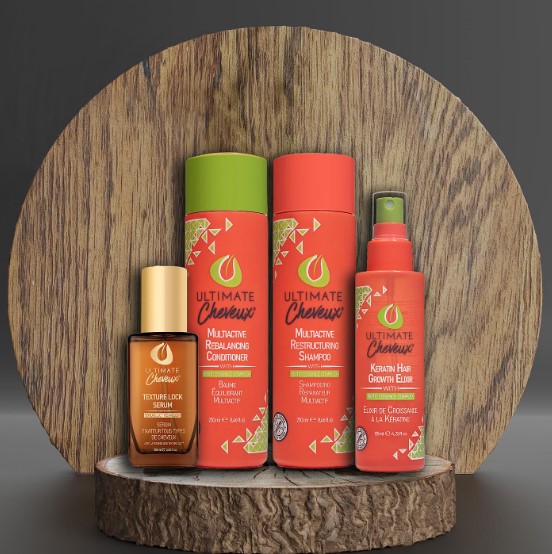
Benefits of Ultimate Cheveux®:
Mild and Effective: Thanks to its mild formulation, Ultimate Cheveux® offers not only effective hair washing but is also suitable for everyday use.
Maintains Physiological Balance: Regular use of Ultimate Cheveux® helps maintain the physiological balance of your hair, promoting overall health and vitality.
Stimulates Hair Growth: The Biotic Essence® technology, the foundation of Ultimate Cheveux®, plays a key role in reducing hair loss by inducing dermal papilla cells to reactivate hair growth.
Organic Blend: Each product within the Ultimate Cheveux® range contains a proprietary organic blend of different extracts. These extracts work synergistically with other active ingredients, carefully selected based on the type and function of each product.
Explore the comprehensive range of Ultimate Cheveux® products, each designed to cater to specific hair care needs. By incorporating Biotic Essence® technology, the Ultimate Cheveux® system simplifies hair treatment, improving efficiency and delivering results you can see and feel.
Conclusion
Achieving long and healthy hair requires a holistic approach. This guide empowers informed decisions, blending science, practical tips, and myth debunking. Consider enhancing your routine with Ultimate Cheveux® by the FloClaire Group – a mild, effective, and professional hair restoration system. Utilizing Biotic Essence® technology, it reduces hair loss and restores natural balance. Embrace the science, stay consistent, and may your journey be filled with satisfaction and confidence!

